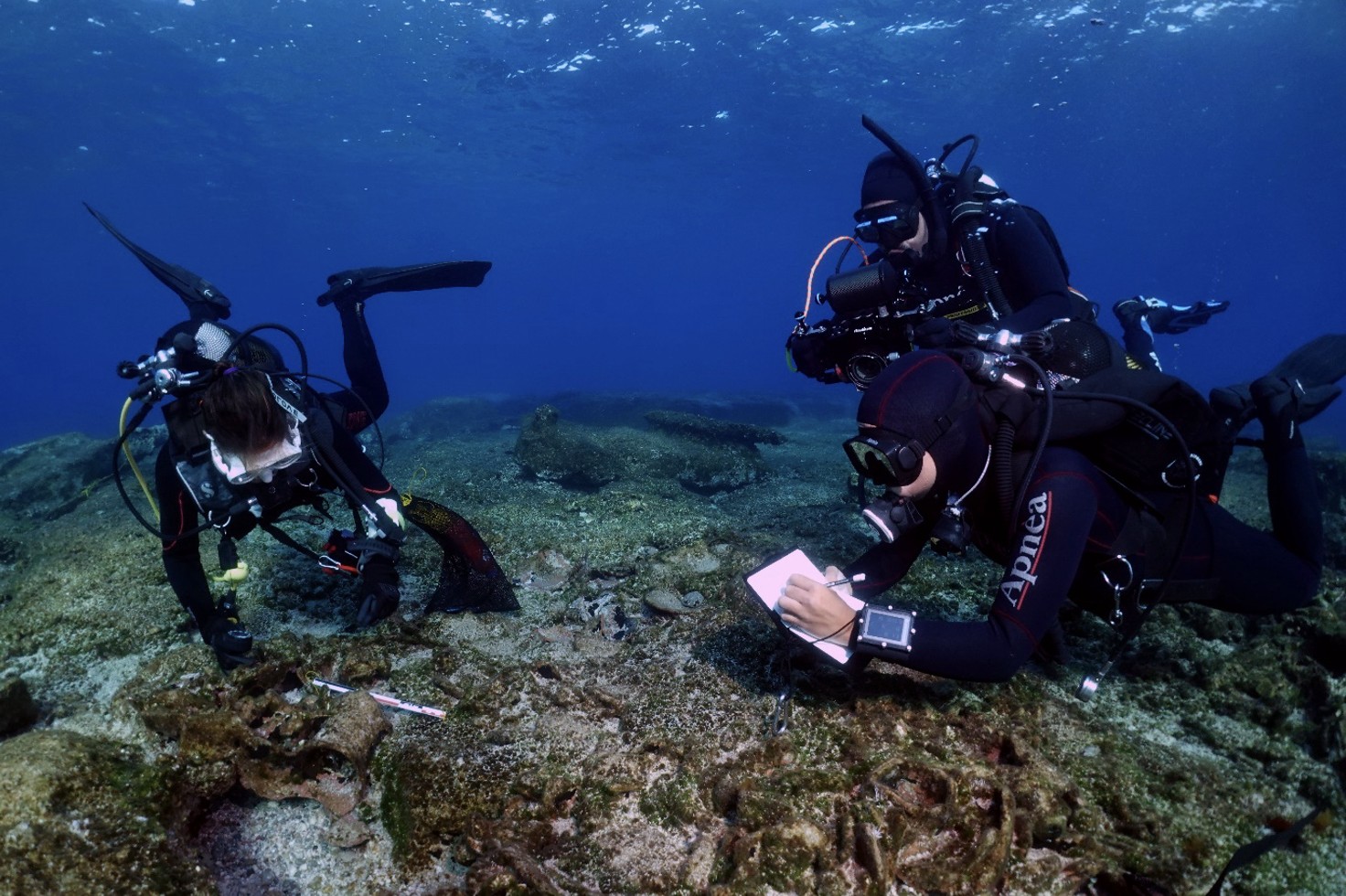Ten shipwrecks, some dating back to 3000 BC, were discovered off the coast of Kasos, the southernmost island of the Dodecanese in Greece, the Culture Ministry announced on Wednesday.
The finds came to light after the completion last fall of an archaeological study known as the “Kasos Maritime Archaeological Project” carried out by a Greek and international interdisciplinary team of experts. The underwater archaeological survey of Kasos’ marine environment was launched in 2019 and led by the National Hellenic Research Foundation.
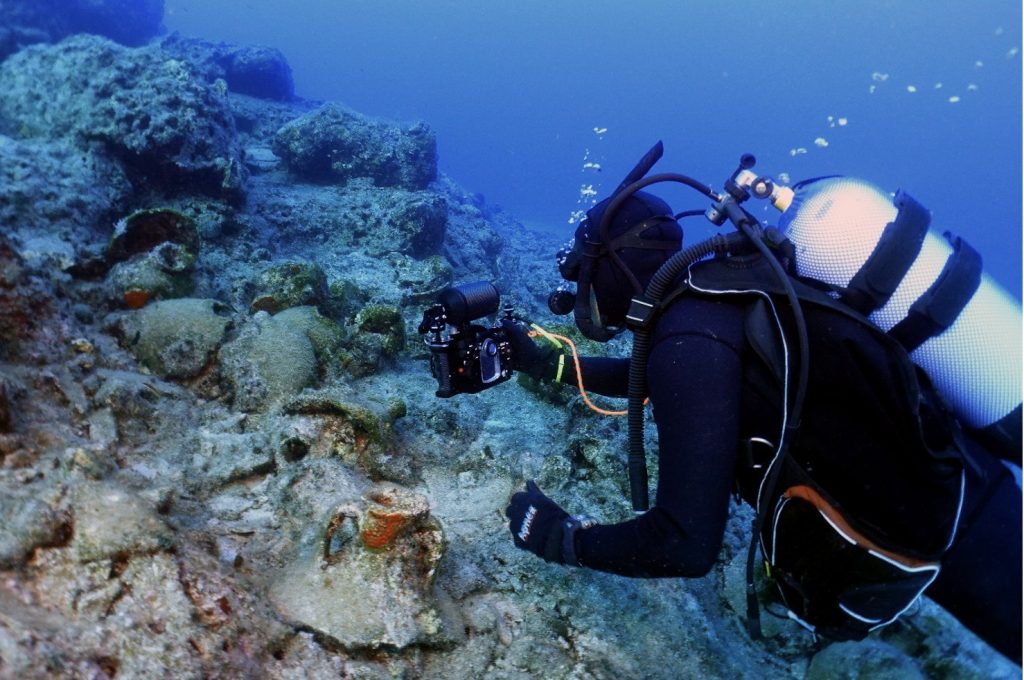
Underwater archaeological research in the marine area of Kasos island, Greece. Photo: Greek Culture Ministry
The Kasos finds include wrecks dating to the Classical period (460 BC), the Hellenistic period (100 BC to 100 AD), the Roman era (200 BC – 300 AD), Byzantium (800 – 900 AD), the Medieval and Ottoman periods as well as WWII.
The research conducted at depths of up to 47 meters brought to light unique finds, including a 150-170 AD Dressel 20 Spanish amphora, drinking vessels, Roman-era terra sigillata pottery, an anchor as well as other important archaeological artefacts.
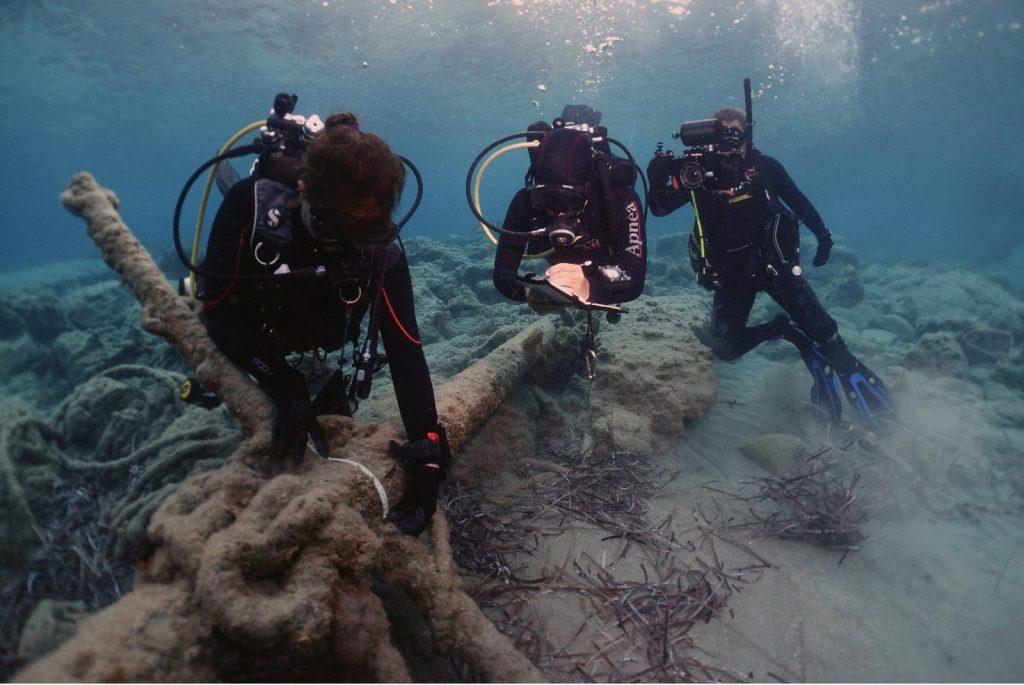
Photo: Greek Culture Ministry
You can learn more about the Kasos project and finds here.
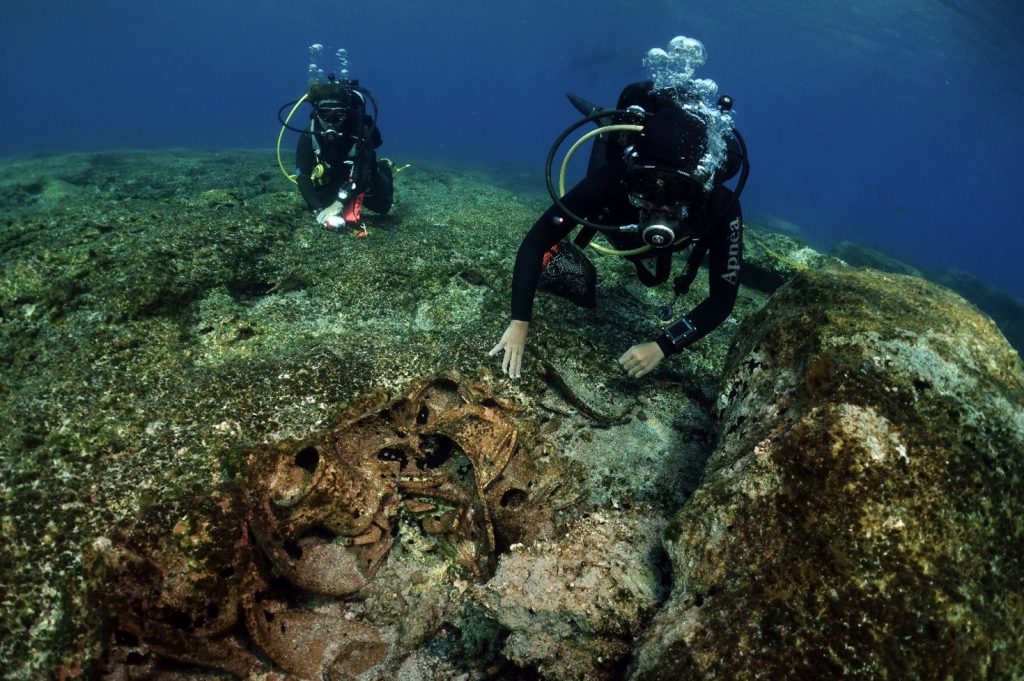
Photo: Greek Culture Ministry
The underwater research conducted near Kasos has been documented in a short film titled “Diving in Aegean History” produced by Aori Films and participating in the San Francisco Greek Film Festival this month.
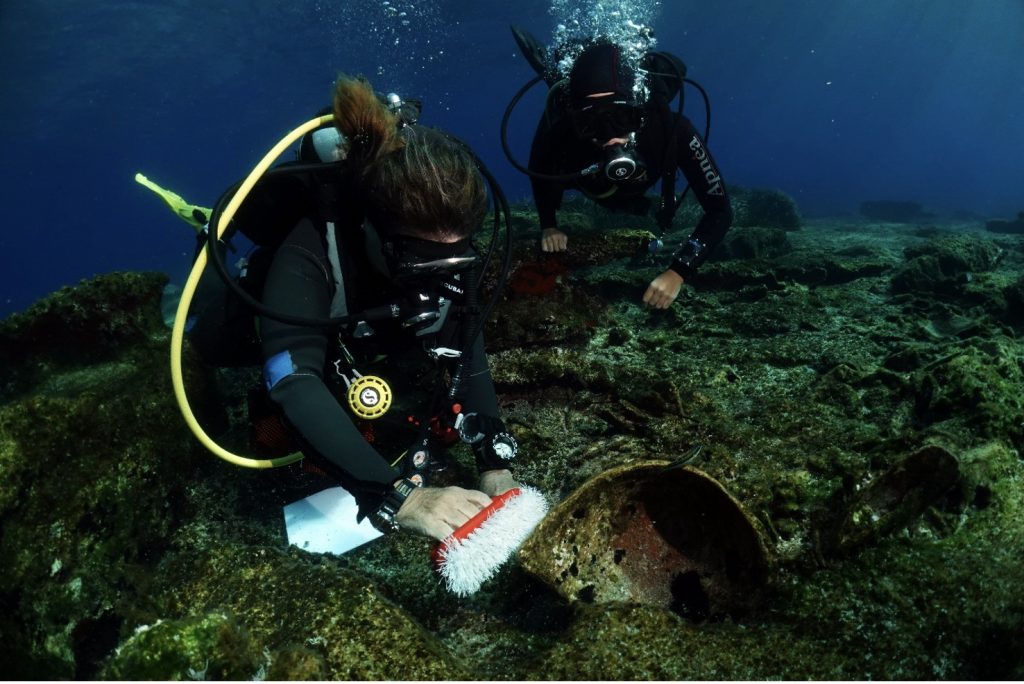
Photo: Greek Culture Ministry
Greece launched its first underwater museum off the island of Alonnisos in 2020 and is taking actions to make other sites and shipwrecks accessible to the public.

